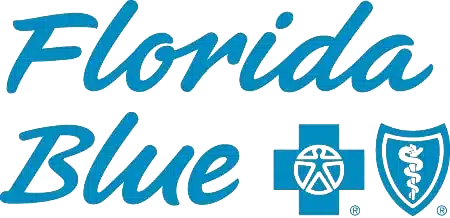Dialectical Behavior Therapy
DBT combines cognitive-behavioral techniques with mindfulness to help individuals regulate emotions, cope with distress, and improve relationships.
Start Today!
Availability
In-person or via telehealth
Depending on
therapist availability.
Booking
1-2 weeks
Appointments can usually be scheduled within 1–2 weeks, with sooner options for urgent needs.
Duration
45-60 minutes
Sessions typically
last 45–60 minutes.
How Can Dialectical Behavior Therapy Improve Your Life?

Enhances Emotional Regulation: DBT teaches practical skills to understand, accept, and manage intense emotions, reducing emotional reactivity and improving stability.

Develops Coping Skills: It equips individuals with effective strategies for tolerating distress, reducing impulsive behaviors, and navigating difficult situations without resorting to harmful actions.

Improves Relationships: Through training in interpersonal effectiveness, people learn to communicate needs clearly, set healthy boundaries, and build more stable and fulfilling relationships.
Where Can I Take This Treatment and How?
Dialectical Behavior Therapy is available at multiple convenient locations, including our Naples, Fort Myers, Tampa, and Southwest Florida (SWFL) offices.
Not located near one of our offices or prefer meeting remotely? We also offer telehealth sessions to anyone located anywhere in Florida, so you can access support from the comfort of your home.
Ready to take the next step? Call us at 239-537-9646 or Fill out our Scheduling Form to get started today.
- (239) 688-2781
-
12811 Kenwood Lane
Fort Myers, FL 33907
Suite 213: Therapy
Suite 201: Psychiatry
- (239) 365-2258
-
2345 Stanford Ct.
Naples, FL 34112
Suite 602: Check-In
We accept insurance
We accept major commercial insurance providers and Medicaid.















Frequently Asked Questions (FAQ) about Dialectical Behavior Therapy
What is Dialectical Behavior Therapy (DBT)?
Dialectical Behavior Therapy (DBT) is a therapeutic approach initially developed to treat borderline personality disorder. Due to its effectiveness, it has been adapted to address a variety of other mental health disorders.
Who provides Dialectical Behavior Therapy?
- DBT is provided by mental health professionals who have received specialized training in this evidence-based approach.
- Qualified DBT therapists often complete intensive training through programs such as those offered by Behavioral Tech or DBT-Linehan Board of Certification.
- Many work in private practices, clinics, or structured DBT programs.
What conditions can DBT treat?
DBT was originally developed for individuals with Borderline Personality Disorder (BPD) but has since been adapted to treat a range of conditions. Beyond borderline personality disorder, DBT has been effectively utilized to treat conditions such as ADHD, bipolar disorder, eating disorders, and PTSD. Also including:
- Chronic suicidal thoughts and self-harming behaviors
- Emotion dysregulation
- Post-Traumatic Stress Disorder (PTSD)
- Depression and anxiety
- Eating disorders (especially binge eating or bulimia)
- Substance use disorders
- ADHD and impulse control issues
- Relationship instability and intense mood swings
How does DBT work?
DBT combines cognitive-behavioral techniques with mindfulness practices to help individuals regulate emotions, develop healthy coping mechanisms, and improve interpersonal relationships.
What are the core components of DBT?
The primary components of DBT include:
– Mindfulness: Cultivating present-moment awareness and acceptance.
– Distress Tolerance: Building skills to tolerate and manage distressing situations without resorting to harmful behaviors.
– Emotion Regulation: Identifying and managing intense emotions effectively.
– Interpersonal Effectiveness: Enhancing communication skills to maintain healthy relationships.
These components work together to provide a comprehensive framework for individuals to navigate emotional and interpersonal challenges.
How can DBT improve my life?
- Manage intense emotions without feeling overwhelmed
- Reduce impulsive behaviors or self-harm
- Improve relationships through healthy communication skills
- Build distress tolerance so you can navigate crises more effectively
- Increase mindfulness and emotional awareness
- Create a life that feels more balanced, stable, and aligned with your goals
- DBT blends acceptance and change strategies so you can feel validated while still moving toward personal growth.
How many sessions are typically needed?
DBT is often offered as a comprehensive program lasting around 6 months to 1 year, including:
- Weekly individual therapy
- Weekly skills training group
- Some clients continue with DBT for longer-term support, while others may complete a shorter-term or modified version based on their needs.
Is DBT suitable for everyone?
DBT is highly effective, but it may not be ideal for everyone. It is best suited for individuals who:
- Struggle with intense emotions or self-destructive behaviors
- Are willing to learn and apply new skills
- Can commit to regular sessions and homework
Those in acute crisis, with severe cognitive impairments, or with limited capacity to attend consistent therapy may need additional stabilization or a different approach before starting DBT. A DBT-trained therapist can assess your readiness and suggest the right level of care.
How can I begin DBT?
Our team will match you with a licensed therapist experienced in Dialectical Behavior Therapy and guide you through the process of scheduling your first appointment.
We’re here to support you every step of the way.
